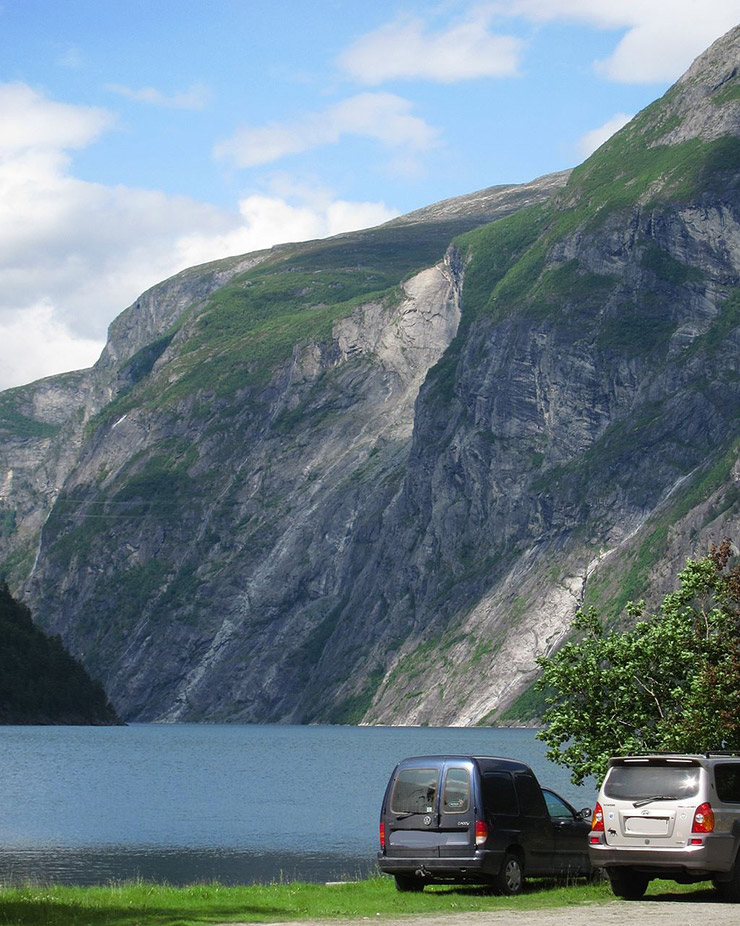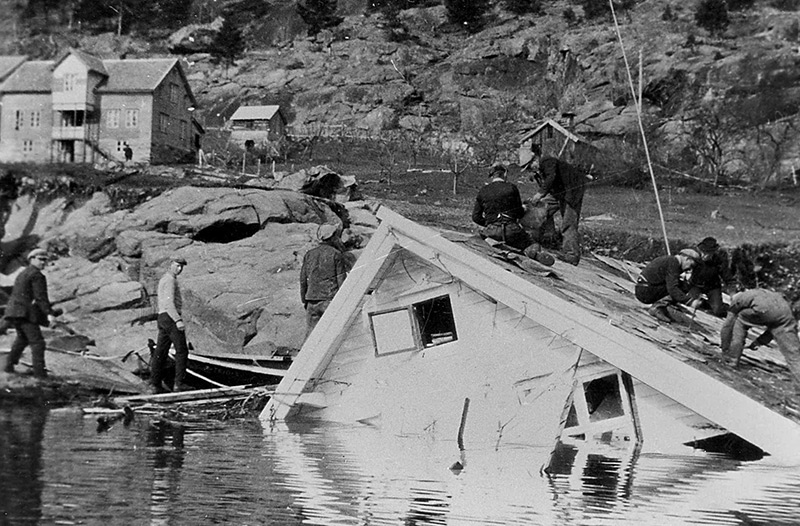Week 8 : Mass Wasting Hazards in Norway
For this week's blog entry, I will be focusing on mass wasting hazards in Norway. These consist of landslides, rockslides, and mudslides. Mass wasting in geology can also be referred to as the mass movement of rock or soil that travels downward because of the power of gravity! The way Norway's geological composition lies is the perfect construction for consistent movements of landmass moving down a slope. These can range from singular rocks to full-blown landslides. The image below shows a map of the vulnerable locations that are susceptible to landslides in Norway.
To the earliest recordings of landslides in Norway, more than 33,000 landslides have occurred, damaging structures, farmland, and most importantly affecting the lives of Norway's inhabitants. 1100 people have been estimated to be casualties or deceased during the span of Norway's landslides. The photo below is a landslide, but can also be considered a debris avalanche. This one here took over some farmland but thankfully stopped before consuming the farm itself!
One example of a rockslide disaster was in Tafjord, Norway in 1934. At a height of around 2,300 ft up, 2 million cubic meters of rock fell off the Langhamaren mountain, causing a tsunami and sadly taking 34 lives with it. This disaster was one of the worst to happen in Norway during the 20th century.

Work Cited
https://en.wikipedia.org/wiki/Mass_wasting
https://en.wikipedia.org/wiki/Tafjord
https://www.lifeinnorway.net/tafjord-tsunami/
https://www.ngu.no/en/topic/landslides
https://nhess.copernicus.org/articles/9/469/2009/#:~:text=In%20Norway%20the%20terrain%20is,waves%20and%20endangering%20large%20areas.
https://publikasjoner.nve.no/rapport/2019/rapport2019_01.pdf


Hey Jonathan!
ReplyDeleteWow, 33,000 landslides! It looks like Norway's susceptibility primarily lies on the coast, right on the ocean. This makes sense, especially given the picture you posted, because of the extreme steepness of the cliffs. Gravity plus this steepness is bound to cause mass wasting. In addition, I believe Norway gets a lot of rain/snowfall which is reason for the high susceptibility. Similarly to Argentina (and the rest of the world for that matter), it is important to implement mitigation methods because climate change is going to cause increases in torrential rainfall.
I enjoyed reading your post!
Thank you for your great research this week- I loved to see your susceptibility landslide hazard map!
ReplyDelete